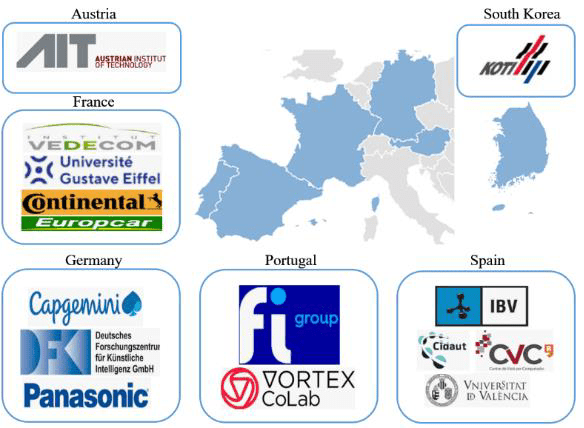
Automated driving is one of the hot topics in transport research and development. The evolution of advanced driving assistance systems, ADAS, is gradually increasing the automation level of vehicles on the roads. In a near future, highly automated vehicles will be present in the traffic, but the transformation will not be instantaneous and for the coming few decades, vehicles with different level of automation will share the infrastructure giving place to a transition phase where the human and the artificial intelligence will need to coexist.
CIDAUT, in the frame of European Project BERTHA, develops innovative driver behavioral models to improve safety and resiliency in connected, cooperative and automated mobility (CCAM). The aim of this development is to create a scalable and probabilistic driver behavioral model based mostly on Bayesian Belief Networks, able to cover different aspects of human driving performance at complex scenarios. The models will be implemented to validate technological and practical feasibility of different advanced driving assistance systems, ADAS.
The project is open source oriented and it will share the behavioral model with the scientific community in order to facilitate the easy growth of the project’s scope. An interrelated demonstration in also included to show this model approach as a reference to design human-like, easy predictable and acceptable behavior of automated driving functions in mixed traffic scenarios.
To tackle this ambitious objective, CIDAUT will cooperate with fourteen partners from seven countries and two continents, in the frame of BERTHA project.
The research leading to these results has received funding from Horizon Europe under Grant Agreement nº 101076360.